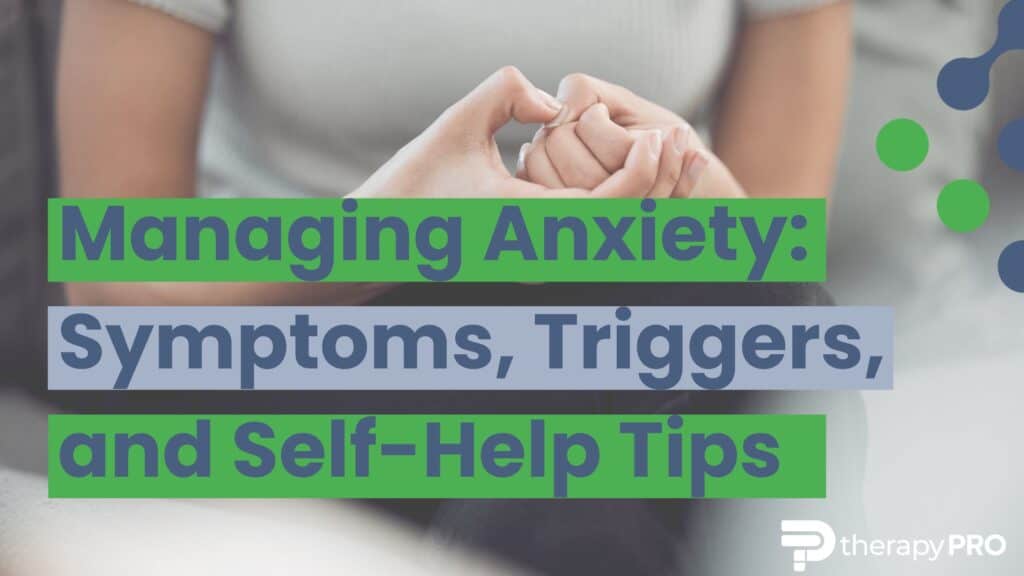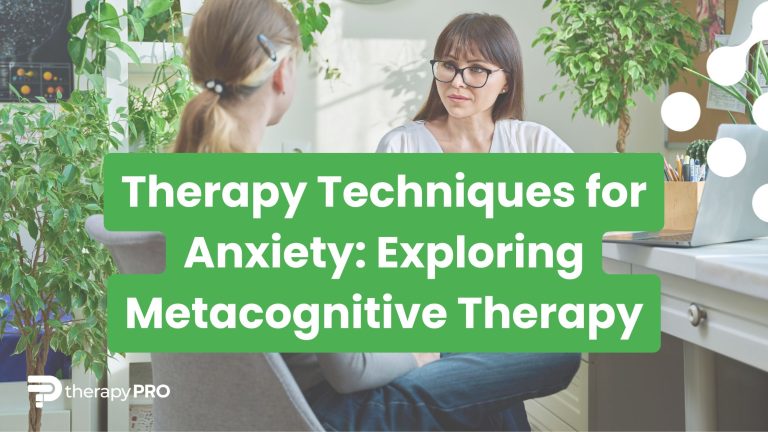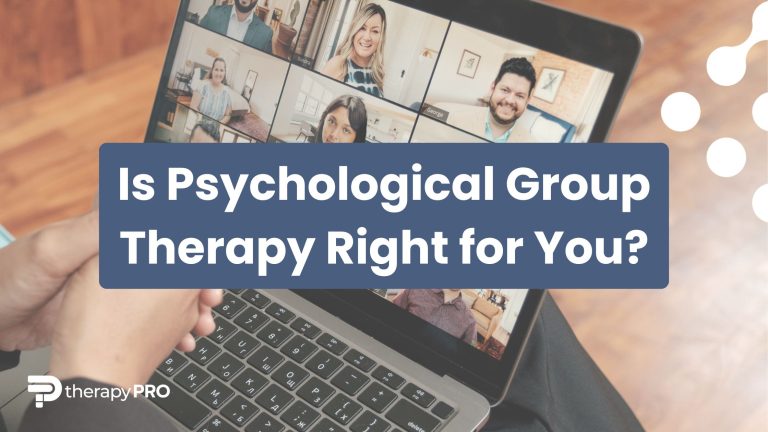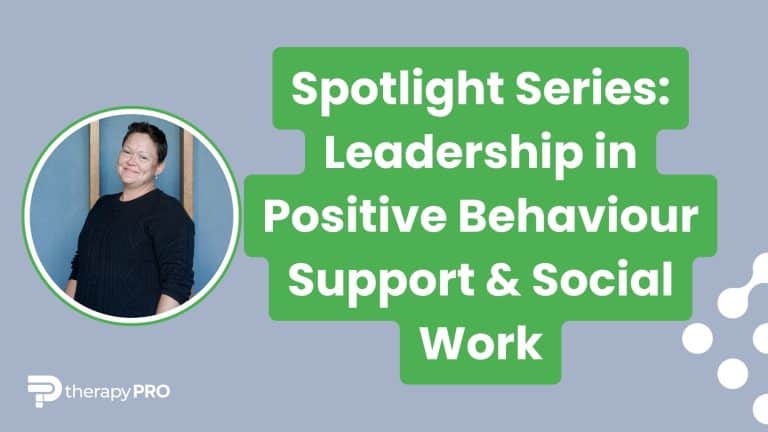Managing Anxiety: Symptoms, Triggers, and Self-Help Tips
Anxiety is more than just feeling stressed or worried.
While stress and anxious feelings are common responses to situations where we feel under pressure, they usually pass once the stressful situation has passed, or the ‘stressor’ is removed.
However, for many individuals, these anxious feelings don’t go away – they’re more persistent and can affect daily life.
Recognising the Symptoms of Anxiety
Anxiety can present itself in many ways. Aside from feeling overwhelmed or fearful, symptoms can include:
- Excessive worrying or obsessive thinking
- Feeling irritable or on edge
- Difficulty concentrating or mind going blank
- Physical symptoms such as a racing heart, sweating, shaking, or stomach issues
- Avoiding situations that make you anxious
These symptoms can vary in severity and may come and go, but they are often persistent enough to interfere with your day-to-day tasks. When this occurs, then it might be time to seek some professional support.
Triggers and Causes of Anxiety
Anxiety can be triggered by a variety of factors, including:
- Personal or work-related stress
- Traumatic events
- Physical health issues
- Other mental health conditions
- Substance use or withdrawal
It’s important to understand that anxiety is not just a result of personal weakness or a character flaw, but often involves a complex combination of factors.
There may be times when you’re unsure what the trigger, (or combination of triggers) are, and this is okay. It’s something that you might explore with a mental health therapist to find answers.
The Role of Allied Health Professionals
Embarking on a journey with a therapist can be a transformative experience. At Therapy Pro, our psychologists and mental health social workers are compassionate individuals dedicated to providing a safe, supportive, and welcoming environment.
When you work with one of our therapists, you’ll find a judgment-free zone where your feelings and experiences are validated and respected.
Our therapists understand that each person’s journey with anxiety is unique. They listen attentively, ensuring that you feel heard and understood. This nurturing approach helps build a strong therapeutic relationship, which is a cornerstone of effective treatment.
Therapeutic Approaches to Anxiety
Your therapist will use a variety of therapeutic tools to support you manage and understand your anxiety.
More importantly, they will tailor these to fit your individual needs and circumstances. They work with you collaboratively, helping you to set realistic goals and develop strategies to manage anxiety. This could involve exploring underlying causes, teaching coping mechanisms, or guiding you through mindfulness practices.
Effective treatment for anxiety typically involves a form of psychological counselling and therapy, such as:
- Cognitive Behavioural Therapy (CBT): This form of therapy helps to change negative patterns of thinking, behaving, and emotional response.
- Acceptance and Commitment Therapy (ACT): Focusing on accepting feelings rather than struggling with them.
- Mindfulness-Based Therapies: These encourage staying present and engaged in our lives.
- Interpersonal Psychotherapy: This focuses on personal relationships and can be particularly effective if your anxiety is triggered by interpersonal issues.
Your therapist will walk you through the options to determine which one is best for you and your personal circumstances.
What Therapy for Anxiety Might Look Like, Sound Like, and Feel Like
We understand that the idea of starting therapy can be daunting.
You might worry about being overwhelmed or not knowing what to expect. Our therapists are skilled at easing these concerns, guiding you gently through the process, and ensuring that you progress at a pace that feels comfortable for you.
In each session, your therapist will work with you to gradually build your confidence and equip you with the skills to manage your anxiety.
The aim is not just to alleviate symptoms but to empower you with a deeper understanding of yourself and your mental health.
Whether you choose face-to-face sessions or our flexible online mental health services, our commitment to your mental well-being remains the same.
Self-Help Strategies for Managing Anxiety
In conjunction with professional help, there are several self-help strategies that can significantly support your mental health.
Regular Exercise
Engaging in physical activity releases endorphins, the body’s natural mood lifters. Exercise also helps in reducing stress hormones like cortisol. It can improve sleep quality, enhance your sense of control, and increase your energy levels, all of which are beneficial in managing anxiety.
Mindfulness and Meditation
These practices focus on bringing your attention to the present moment. Mindfulness helps reduce rumination and excessive worrying by training your mind to focus on the here and now. It can enhance your ability to cope with stressful situations, increase self-awareness, and encourage a calm and non-judgmental mindset.
Healthy Eating
Nutrition plays a key role in mental health. Foods rich in omega-3 fatty acids, like salmon, and those with antioxidants, like blueberries, can reduce the symptoms of anxiety. A balanced diet ensures your brain gets the necessary nutrients to function properly, impacting your mood and energy levels.
Adequate Sleep
Poor sleep can exacerbate anxiety symptoms. Establishing a regular sleep pattern and ensuring you get enough rest helps regulate mood, improves brain function, and reduces stress levels. Practices like reducing screen time before bed and creating a restful environment can aid in better sleep.
Social Support
Building and maintaining a strong support network provides emotional comfort and a sense of belonging. Sharing your feelings with someone you trust can provide relief, perspective, and connection. It can also help in reducing the feeling of isolation often associated with anxiety.
Implementing these strategies can make a significant difference in managing anxiety and improving overall well-being. And while they are not a substitute for professional therapy, they are valuable tools in your mental health toolkit.
Taking the First Step
Remember, acknowledging that you’re experiencing anxiety is a significant first step.
If you feel ready to take the next step towards managing your anxiety, view our online mental health therapists and book an appointment today.
Whether online or in person, we’re here to support you on your journey towards a calmer, more fulfilling life.




